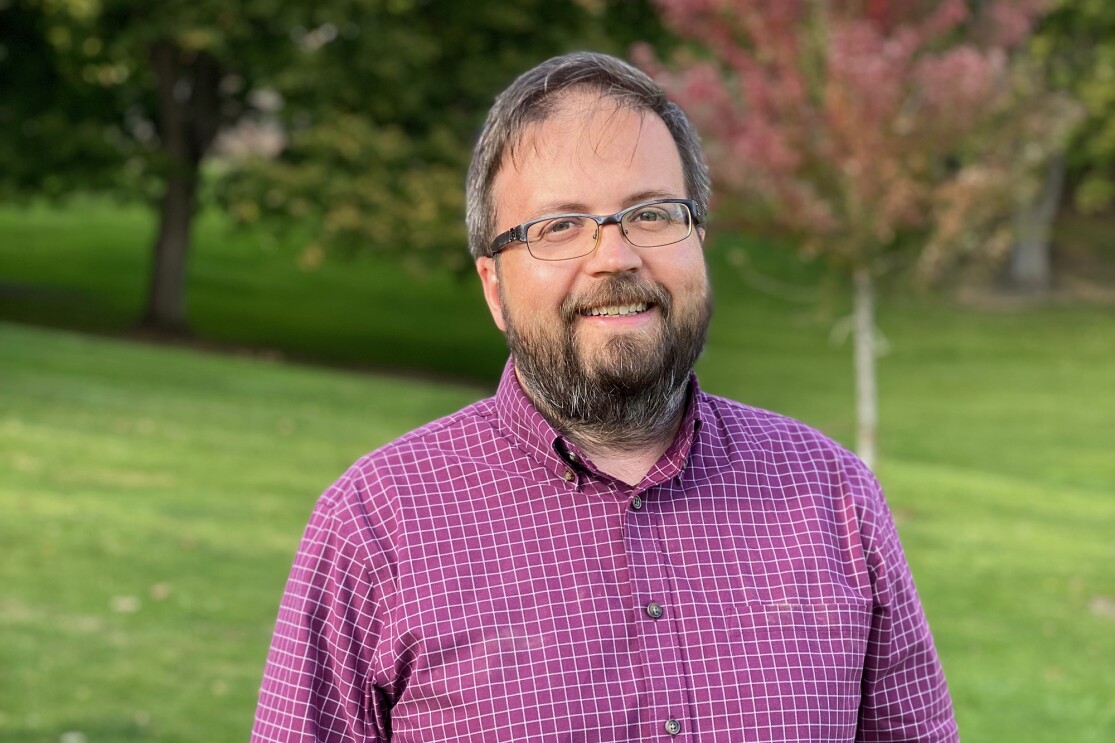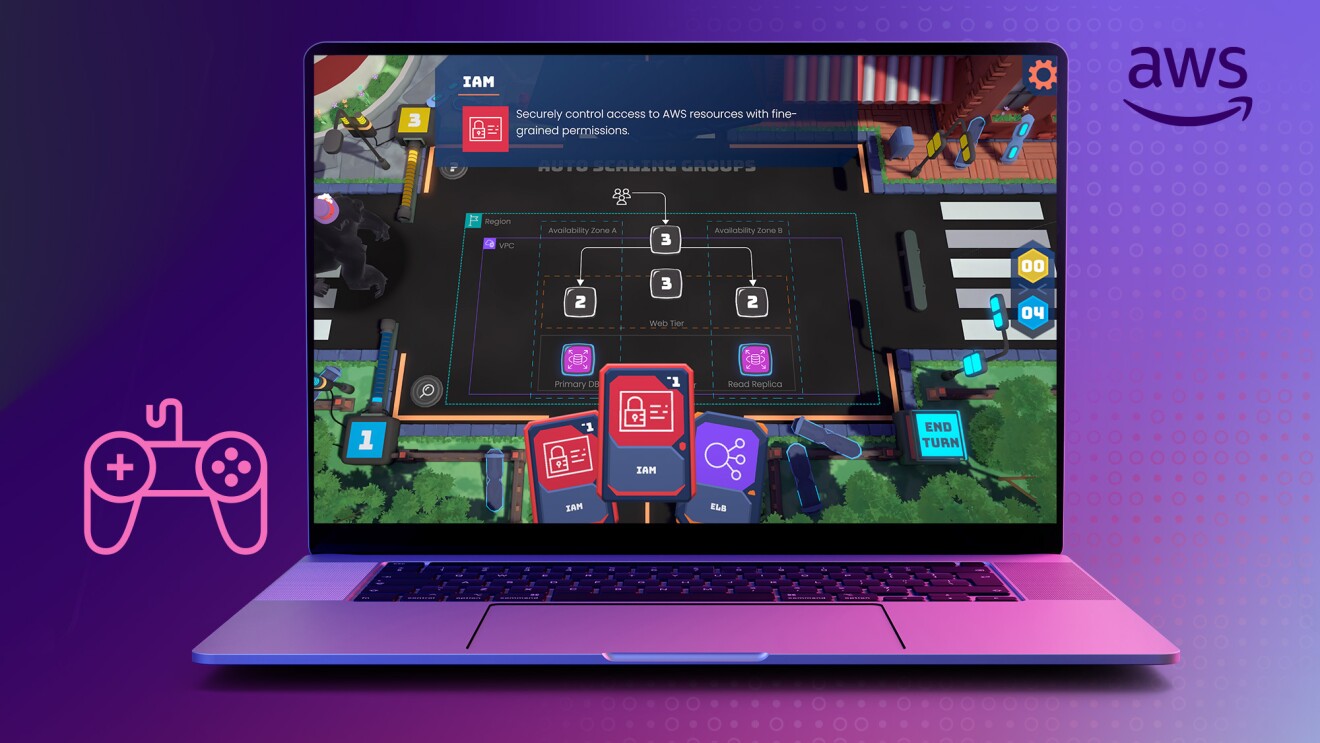When Amazon Web Services (AWS) began building data centers in northeastern Oregon, the company saw an opportunity to offer local people training to develop the skills they would need to pursue new careers in the industry—and Blue Mountain Community College was on hand to help.
In 2015, AWS teamed up with Peter Hernberg—who has taught math and computer science at the college in the city of Pendleton for eight years—to create the Data Center Technician Training Program. The initiative has since assisted more than 80 individuals from the region to secure jobs in cloud computing.
AWS employee Todd Milev, an early data center manager in the area and now a Community Engagement Manager for the AWS InCommunities program, is also one of the program co-founders.
In addition to developing the curriculum for the college to ensure it followed recognized certification standards, Milev and his colleagues taught specific modules in the early days when the program was getting off the ground.
So many fantastic students have not had any previous technical training. I really try to communicate this as widely as possible. Not many people realize it’s a field you can break into so easily. It’s very open because it's so new.
Peter Hernberg
Teacher at Blue Mountain Community CollegeThe initial AWS hands-on support provided a foundation, and Hernberg now leads the program himself. And while he may be a computer-whizz who built his first PC when he was still a teenager—together with Milev, and the rest of the AWS team—Hernberg recognized that many people experience multiple barriers when it comes to achieving a career in technology.
“We were determined to design an inclusive program that could take someone from having no previous technical knowledge to being employed in an entry-level data center role,” he said.
“So many fantastic students have not had any previous technical training. I really try to communicate this as widely as possible. Not many people realize it’s a field you can break into so easily. It’s very open because it's so new.”
“Our main concern in the beginning was whether enough people would be interested,” added Milev. “In fact, it was the complete opposite. We ended up receiving many more applications than the number of places we had in the program.”
The one-year program is open to anyone, regardless of their background or skills, and prepares them for employment in data centers and the broader IT sector. In addition, AWS makes a total of $50,000 available in scholarships annually—vastly reducing the cost of participation for students.
People from various backgrounds participate in the program. Some students are straight out of high school while others have been working in local warehouses, gas stations, or other industries.
Every few weeks I get calls from recruiters saying, ‘Hey, do you have any more students?’ Most of the time my answer is, ‘No. Unfortunately, they are already hired.’ But it’s a nice problem to have.
Peter Hernberg
Teacher at Blue Mountain Community CollegeThe program is designed to be as flexible as possible, to allow individuals to continue working or managing other responsibilities, such as taking care of their families, while gaining new qualifications. It is deliberately practical, ensuring that students can apply what they learn, and it accurately reflects the tasks data center technicians encounter in real life.
“A lot of the technologies you find in a modern data center are very similar to some of those you find on a desktop computer,” said Hernberg. “It means that our students can play around with old home computers and learn the basics of information technology. It prepares individuals for jobs as they are, not as people might imagine them to be. It means we’ve been very successful in placing students into careers in data centers.”
According to Hernberg, at least 90% of students who complete the program achieve job placements, often before they finish their studies.
“There are a tremendous number of opportunities in the industry right now. I wish more people knew how much of a viable career path this is, with so much potential to grow and develop—no matter what your education or experience,” he said.
“Every few weeks I get calls from recruiters saying, ‘Hey, do you have any more students?’ Most of the time my answer is, ‘No. Unfortunately, they are already hired.’ But it’s a nice problem to have.”
So committed is Hernberg that when he took a sabbatical from teaching at the college, he chose to spend time working in a local data center as an entry-level technician, so he could “do just what our students do” and make sure he fully understands the day-to-day nature of the roles.
It was while working in the data center that Hernberg ran into a student he had not seen for five years—a story he recounted with emotion.
 Teacher Peter Hernberg worked with a team from AWS to create the Data Center Technician Training Program.
Teacher Peter Hernberg worked with a team from AWS to create the Data Center Technician Training Program.“He was so full of ambition to have a career, to do something that would make his kids proud,” said Hernberg. “When I saw him, he was a data center manager, rolling out a very complex project. He had achieved so much since he completed our program.”
The Data Center Technician Training program at Blue Mountain Community College began again for the new academic year in September, welcoming a new group of students from the local area—all eager to learn, with support from Hernberg and AWS.
The program is the second initiative of its kind AWS has set up, in collaboration with local educational institutions, to enable people living near its data centers to upskill and begin careers in IT and cloud computing.
In Ireland, AWS supports the Data Center Technician Program at TU (Technological University) Dublin, where graduates include a former refugee and a mechanic who decided to change careers after 15 years of fixing cars.
Hear from three graduates whose lives have been changed by the Data Center Technician Training Program in Oregon.
Trending news and stories









